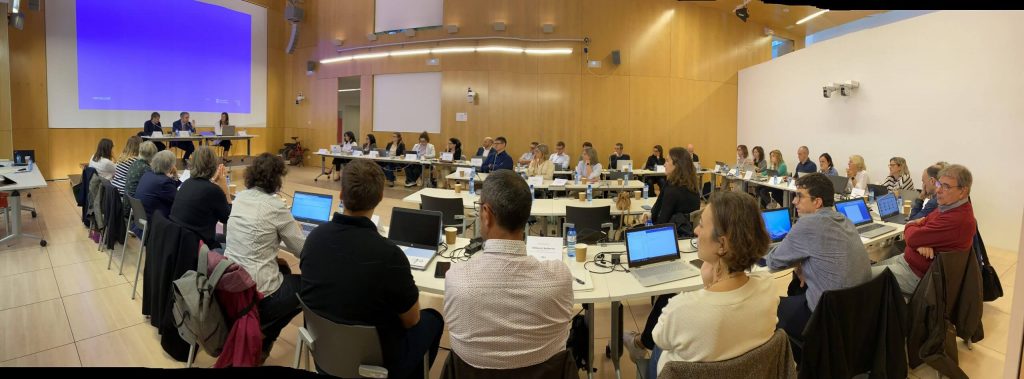When thinking back over the last 25 years of Catalan research, a few milestones came to mind, although they are not necessarily the most fashionable. I will not give an opinion on earlier years, as I did not experience them at first hand, but I am aware of all the work carried out by the Inter-ministerial Council for Research and Technological Innovation (CIRIT) under Gabriel Ferrater, among others, which was full of ambition and brilliant projects. Nor shall I mention many others who have played a significant part. This text is more anecdotal than thorough.
Perhaps the first milestone was the creation of the Commission for Universities and Research in which Professor Josep Laporte undoubtedly played the leading role (1993). In addition, between 1993-1994, Dr Joan Albaigès, as Director General for Research (DGR), created the call for research groups which, with relatively few changes, has continued to evolve up to the present day. During that period, Professor David Serrat, as the DGR, authorised the first purchase of bibliometric data from ISI by the Generalitat de Catalunya. This opened the door to a whole tradition of study and analysis.
From the late 1990s onwards, I recall Professor Pere Pascual and how he brilliantly managed the call for awards which freed a number of university researchers from teaching duties. I miss the bibliometric discussions we used to have in the spirit of constructive open-mindedness.
The 2000s were a prodigious decade. Mas-Colell was appointed minister and created the Catalan Institution for Research and Advanced Studies (ICREA). I still remember the first ICREA meeting, with a table full of paper dossiers, and all of us who were there, especially Professor Salvador Barberà, and wondering: now how do we go about this?
The Agency for Management of University and Research Grants (AGAUR) was created in 2001-2002. I was on the University of Girona Social Council at the time, but I remember the correspondence I held on the Law on universities in Catalonia with Professor Mas-Colell, in which I insisted AGAUR should also be included at the end of the Law, along with the Catalan University Quality Assurance Agency (AQU Catalunya), ICREA and the Universitat Oberta de Catalunya (Open University of Catalonia, UOC). In the end he paid little attention to me… I believe that AGAUR has brought about a positive change in the country’s science policy by providing rigour in assessment, based on reasonable criteria and pragmatism.
In the first three-party government, Professor Xavier Hernández, as the DGR, revolutionised the research system. I think he is one of the few figures who has thought big, taking into account all the elements in the system and facilitating its expansion. He is responsible for the creation of new calls for proposals, such as the Beatriu de Pinós postdoctoral grants. He also strengthened research institutions such as the AGAUR itself, which became a key executive tool in his policies. And he made a huge effort to expand the CERCA programme with new centres. Of particular note was the special emphasis he placed on the humanities and social sciences. In this sense, he promoted the creation of CARHUS, a measurement and assessment system based on objective criteria. In some ways, in the field of research, he emulated Enric Prat de la Riba, whom he often quoted.
In 2008, thanks to the impetus provided by Minister Huguet, the Catalan Agreement on Research and Innovation was passed. I also believe that the text itself is a milestone for the system, even though it has sometimes been applied on the basis of individual interpretations.
The end of the decade was a turbulent one, with numerous changes in responsibilities in Catalan research. Notable in 2010 was the creation of the CERCA Institute to organise the system of centres, although it soon became controversial, as the financial crash very soon meant the CERCA centres received a historic budget cut, which created terrible antagonism in the system.
I prefer not to comment on the current decade until a few more years have passed. As we know, time helps put everything in its place and is very useful when it comes to taking stock.
GenderTalent
Bruna Vives
18/11/2022
The CERCA Institute has launched ÀGORA, an unprecedented and innovative programme for the managers of CERCA centres. ÀGORA focuses on management training and strategic challenges in managing research and innovation.



